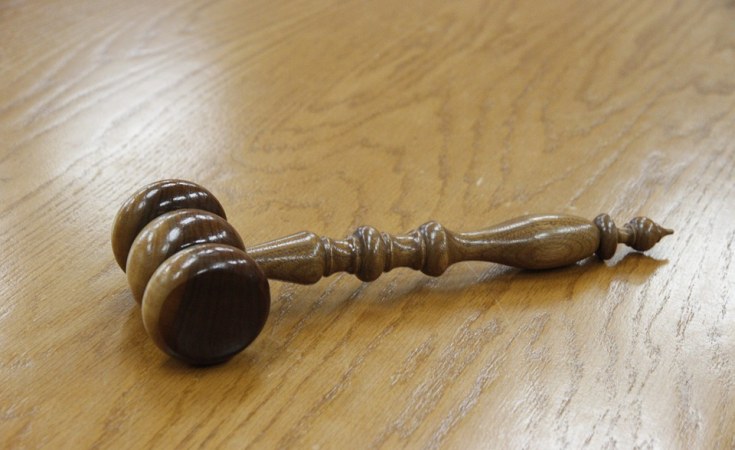..... "The problem is not me, it's the Swiss authorities," Kosiah said under questioning from the Swiss appeal judges today. "Here in this audience, I only see white men, none of you knows Africa or knows what happens. You never went to Liberia to do any research."
During the fourth day of interrogation of the plaintiffs in Alieu Kosiah's appeal of his 2021 conviction for war crimes, the former Ulimo commander lashed out at the Swiss state that arrested him in 2014 and sentenced him to 20 years in prison.
After several days of testimony by plaintiffs that alleged he was responsible for crimes of rape, murder, cannibalism, torture and forced labor in Foya, Lofa County, Liberia in 1993, Kosiah apparently couldn't contain his frustration.
"The problem is not me, it's the Swiss authorities," Kosiah said under questioning from the Swiss appeal judges today. "Here in this audience, I only see white men, none of you knows Africa or knows what happens. You never went to Liberia to do any research."
In earlier testimony a plaintiff detailed a massacre in 1993 known as "Black Monday" in Foya where dozens of civilians were killed. "There was blood everywhere, it was like a horror movie. People were butchered like chickens," the plaintiff said. "As I was coming closer, I recognized my cousin lying on the ground, full of blood. I stepped closer and saw that his heart was missing."
The plaintiff told the court the motivation for this massacre and the murder of his cousin was simple. "Alieu Kosiah told the fighter "Mami Wata" that his brother had been killed in Zorzor. He was so furious that he and Ugly Boy started killing everyone around them." Ugly Boy was a Ulimo commander whose role in Lofa atrocities has been detailed in this trial and that of his Ulimo ally Kunti Kamara, in France. Present on the scene and a hierarchic superior, Kosiah did nothing to prevent the massacre according to the plaintiff.
When challenged about the veracity of his claims about Black Monday by Kosiah's defense lawyer Dimitri Gianoli, the plaintif couldn't hold his emotion:
"If you are from Foya, you will never forget about this day," he told the court. "People were killed like chicken or cows. I don't want to go into too much detail or I will start crying."
The plaintiff, a former Ulimo soldier, went on about the training that Alieu Kosiah had received. A mention that Alieu Kosiah disputed even though his witness, a former child soldier, had stated the same. "He only met me in 1993, and my training was supposed to have happened in 1991, so how would he know?" Kosiah questioned.
A new witness claimed that since three witnesses came to Switzerland on behalf of Alieu Kosiah's request their identities and participation in the trial were publicly revealed. (The court has ruled that plaintiff's and witnesses identities be withheld for their security.) Those individuals were brought in the first trial to prove that some of the victims named by the plaintiff were still alive even though homonyms are frequent in Liberia. In the judgment, the three magistrates were very critical of their testimonies, finding them not credible.
They didn't come this time but Alieu Kosiah talked at length about the incoherence between the names of the victims and the three witnesses he brought. The plaintiff said he knew them because they were from the same village, but that their names were different. When asked if he was afraid he replied: "Kosiah has spent 8 years in jail, do you think his family is happy about the trial ?"
He then went on to speak about the forced labor that the civilians were victims of in the town of Pasolaoun. "The soldiers used to tell us: If you don't walk fast enough or you say that you're tired, the flies will carry the message to your parents That would mean that you were dead".
The forty year old man seemed to be looking in disbelief towards Alieu Kosiah's defense. Then defending himself, Alieu Kosiah couldn't help but boast about his career. "Sky face Kabbah had a great career. But I managed to go further than him". Interested, the president asked him to go further: "So you did a great career inside of the Ulimo ?". "No, I meant my career in the police". As the hearing was dragging on, the judge invited Alieu Kosiah to give his notes to the court in order to save time. His lawyer then intervened. "I suggest to my client to speak without his notes as they are very hard to read from". Following his intervention the judges sent everyone home at 8 o'clock after more than 10 hours of hearings.
The trial continues on Tuesday.
This story is a collaboration with New Narratives as part of the West Africa Justice Reporting Project.


